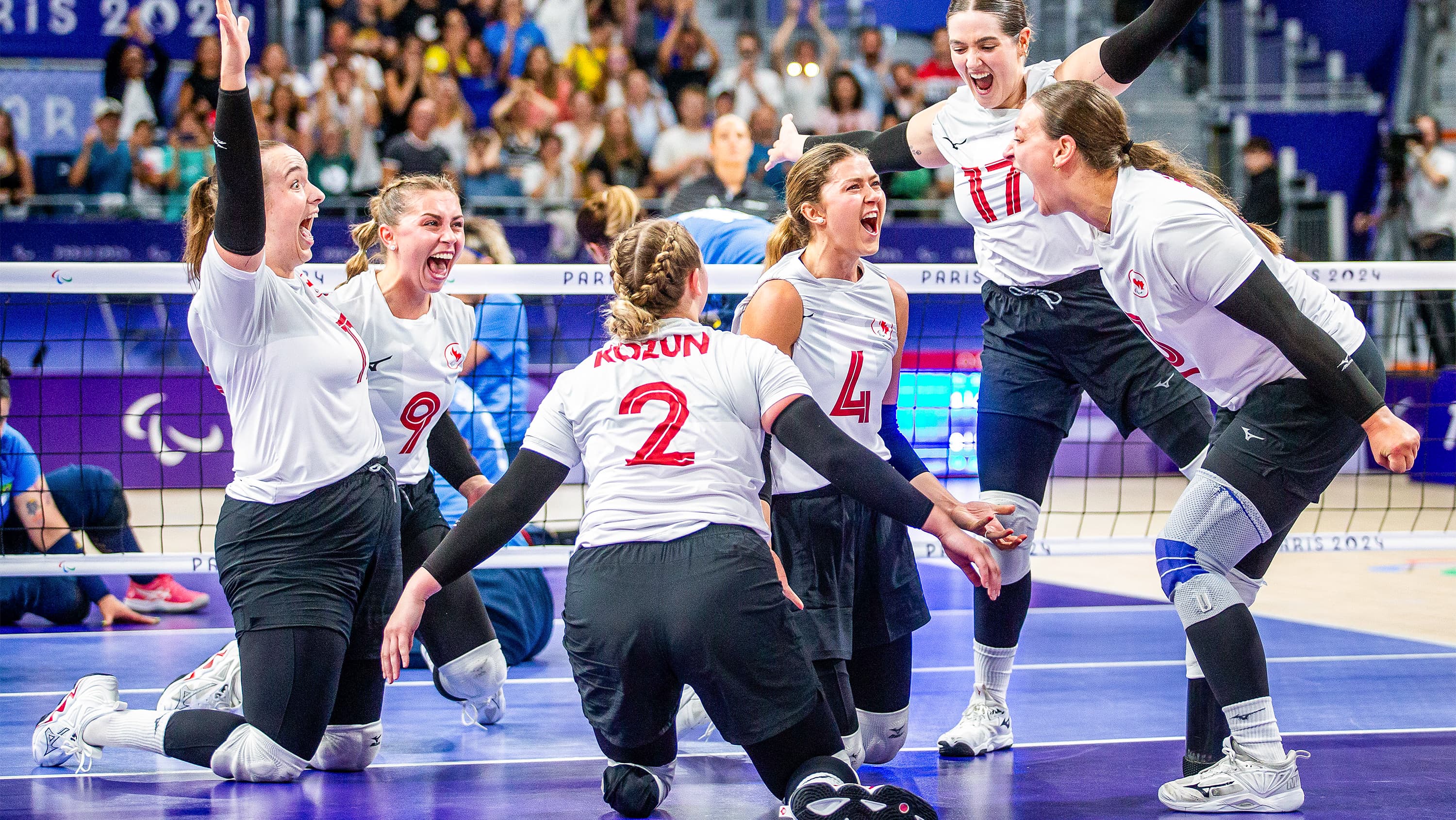Canada’s Women’s Sitting Volleyball Team was ranked seventh in the world going into the Tokyo Paralympic Games in 2021, and the team didn’t reach the podium.
Three years later, Canada was ranked first, and returned home from the Paris Paralympic Games last month with its first bronze medal, defeating Brazil, who had been the team’s main rival in Tokyo.
The medal was Canada’s first in team sports since the men’s wheelchair basketball team won gold at the 2012 London Games.
It was sweet vindication for the team, and a demonstration of how much the athletes sacrificed to get there, says Kate Rozendaal, a University of Alberta doctoral student in counselling psychology who serves as assistant coach to the sitting volleyball team along with fellow doctoral student Chelsea Hobbs.
“Most of them have full-time jobs, so they’re doing this as a part-time commitment that takes months of their time,” says Rozendaal.
Originating in the Netherlands in 1956 — combining volleyball and a game called sitzball — sitting volleyball has been in the Paralympic Games since Arnhem in 1980, designed for athletes with lower limb impairments. Players are seated on a smaller court with a lower net and must remain in contact with the floor at all times except when making defensive plays.
Rozendaal was first introduced to the Canadian team eight years ago when she was a student playing volleyball with the MacEwan University Griffins. The team’s assistant coach, Nicole Ban, was also head coach of the Canadian women’s sitting team and invited Rozendaal to scrimmage with them.
“I just really liked it,” says Rozendaal. “I felt like it was technically challenging.”
She also “fell in love” with the group of players and their individual stories, she adds, agreeing to volunteer on the coaching staff as the team prepared to qualify for the Tokyo Games. She has since been hired part-time.
That serendipitous path led to her current research on the experiences of elite athletes in women’s Parasport and the systemic conditions that allow them to flourish.
“I want to explore how we can support athletes in women’s Parasport because I think they’re in a unique position,” she says. “Historically, they’ve been marginalized compared with disabled men.”
For one thing, like many female athletes, they receive less media coverage than their male counterparts. Or they are portrayed in terms of the stereotypical “super-crip” narrative that overemphasizes disability. Rozendaal argues in her doctoral research proposal that “para-athletes experience unique stressors due to inaccessibility to sport, underrepresentation, and misrepresentation.”
She points out that social support appears to play a key role in creating positive experiences for women parasport athletes, but she says there is limited research to make the case for greater investment in their careers.
Under the supervision of Veronica Smith in the Faculty of Education and Nancy Spencer in the Faculty of Kinesiology, Sport, and Recreation, Rozendaal will consult with Parasport athletes and others in the disability community to identify systemic barriers and the coping strategies used to overcome them.
“Since I’m non-disabled … it was imperative that I partner with women who experience disability,” she says.
Her research collaborators include Canadian women’s sitting team member Allison Lang, Geneva Coulter, Parasport development co-ordinator with the U of A’s Steadward Centre for Personal & Physical Achievement, and U of A graduate Sierra Roth, who works for Bowhead, a company that designs high-performance bicycles for people with mobility disabilities.
Rozendaal says she hopes her findings will allow her to identify what “flourishing” in Parasport looks like and how it can be nurtured, “so we can come up with some hard recommendations” on the way to more Paralympic glory.
